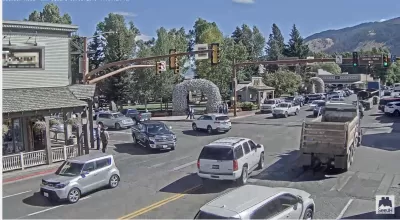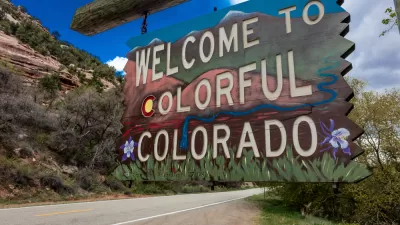The story of Jackson Hole, Wyoming, illustrates the class tensions that arise when an idealized vision of life close to nature butts up against the realities of wealth, privilege, and social inequality.

Billionaire Wilderness is new book by Yale sociologist Justin Farrell that examines the extreme inequality in Teton County in Wyoming, the county with the highest per capita income in the United States.
People are drawn to the area because of its access to spectacular open spaces, but the bulk of land in the county, 97 percent, is public land, leaving small tracts available for development. The tourism industry has also resulted in a large number of low-paid service workers not able to live in Jackson Hole, where many of these jobs are located.
The reasons behind the income inequality in Teton County are varied. For one, Wyoming does not have income tax and property taxes are low, a draw for wealthy individuals from other states. And while philanthropy by the area’s well-off residents is robust, those donations tend to go to arts and conservation causes.
"That is a particular dilemma in Wyoming, where minimal taxes mean the state has extremely limited public funds. Private donations bankroll a lot of services in the county, such as housing assistance or mental-health counseling ('buzzkill issues,' as Farrell puts it)," writes Heather Hansman.
Through a series of interviews, Farrell discovers that the area’s wealthy seem largely unaware of the class discrepancies around them and the struggles of the people behind the tourism industry.
"After outlining the conflicting interests between conservation and growth, affordable housing and preservation, Farrell concludes that we can’t have it all. This has always been a region that was developed according to the interests of the ultrarich, and it’s becoming more apparent who really gets to live out a western fantasy," says Hansman.
FULL STORY: America's Richest Mountain Town Is Its Most Unequal

Maui's Vacation Rental Debate Turns Ugly
Verbal attacks, misinformation campaigns and fistfights plague a high-stakes debate to convert thousands of vacation rentals into long-term housing.

Planetizen Federal Action Tracker
A weekly monitor of how Trump’s orders and actions are impacting planners and planning in America.

In Urban Planning, AI Prompting Could be the New Design Thinking
Creativity has long been key to great urban design. What if we see AI as our new creative partner?

King County Supportive Housing Program Offers Hope for Unhoused Residents
The county is taking a ‘Housing First’ approach that prioritizes getting people into housing, then offering wraparound supportive services.

Researchers Use AI to Get Clearer Picture of US Housing
Analysts are using artificial intelligence to supercharge their research by allowing them to comb through data faster. Though these AI tools can be error prone, they save time and housing researchers are optimistic about the future.

Making Shared Micromobility More Inclusive
Cities and shared mobility system operators can do more to include people with disabilities in planning and operations, per a new report.
Urban Design for Planners 1: Software Tools
This six-course series explores essential urban design concepts using open source software and equips planners with the tools they need to participate fully in the urban design process.
Planning for Universal Design
Learn the tools for implementing Universal Design in planning regulations.
planning NEXT
Appalachian Highlands Housing Partners
Mpact (founded as Rail~Volution)
City of Camden Redevelopment Agency
City of Astoria
City of Portland
City of Laramie





























